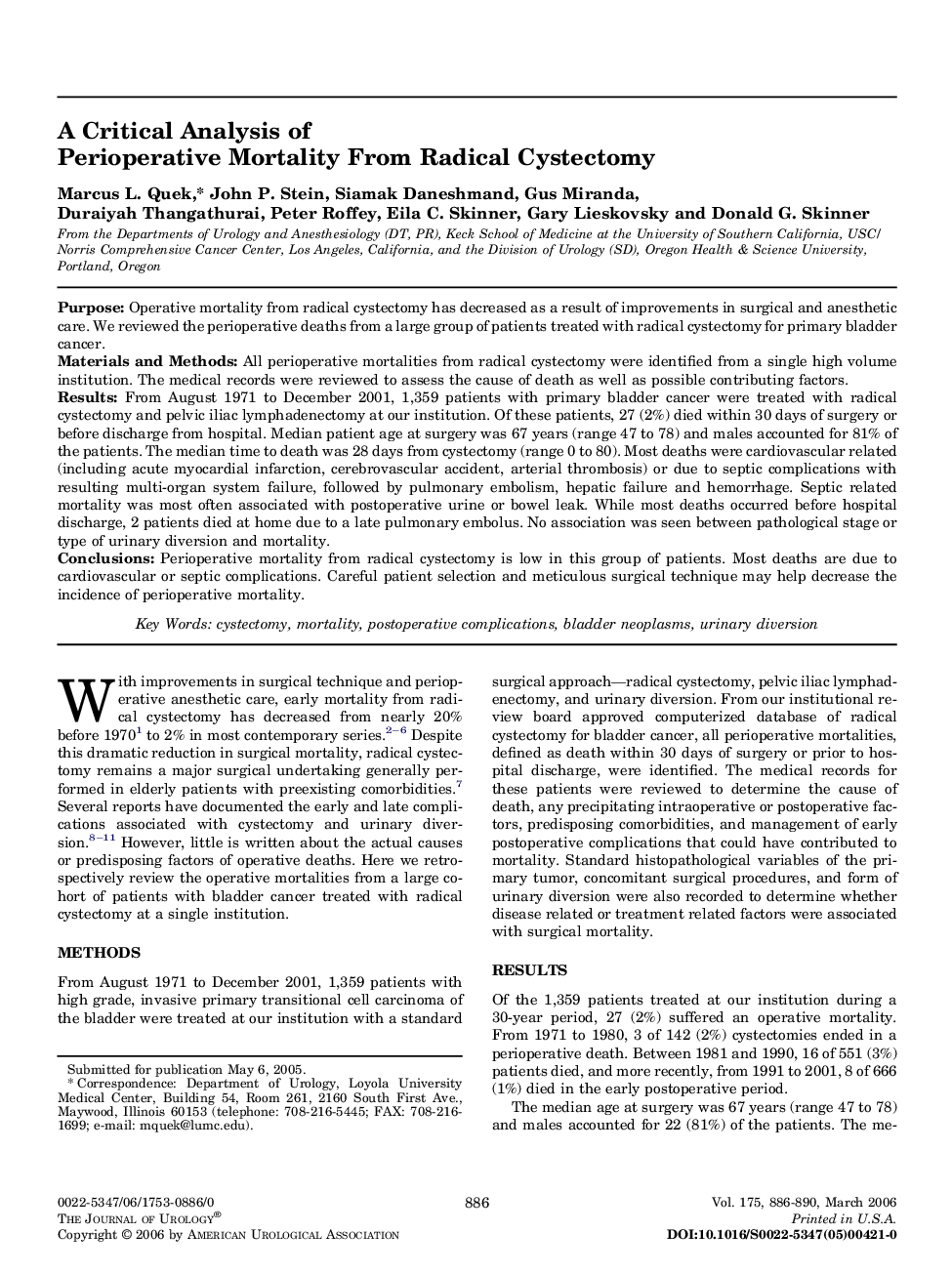| Article ID | Journal | Published Year | Pages | File Type |
|---|---|---|---|---|
| 3877288 | The Journal of Urology | 2006 | 5 Pages |
PurposeOperative mortality from radical cystectomy has decreased as a result of improvements in surgical and anesthetic care. We reviewed the perioperative deaths from a large group of patients treated with radical cystectomy for primary bladder cancer.Materials and MethodsAll perioperative mortalities from radical cystectomy were identified from a single high volume institution. The medical records were reviewed to assess the cause of death as well as possible contributing factors.ResultsFrom August 1971 to December 2001, 1,359 patients with primary bladder cancer were treated with radical cystectomy and pelvic iliac lymphadenectomy at our institution. Of these patients, 27 (2%) died within 30 days of surgery or before discharge from hospital. Median patient age at surgery was 67 years (range 47 to 78) and males accounted for 81% of the patients. The median time to death was 28 days from cystectomy (range 0 to 80). Most deaths were cardiovascular related (including acute myocardial infarction, cerebrovascular accident, arterial thrombosis) or due to septic complications with resulting multi-organ system failure, followed by pulmonary embolism, hepatic failure and hemorrhage. Septic related mortality was most often associated with postoperative urine or bowel leak. While most deaths occurred before hospital discharge, 2 patients died at home due to a late pulmonary embolus. No association was seen between pathological stage or type of urinary diversion and mortality.ConclusionsPerioperative mortality from radical cystectomy is low in this group of patients. Most deaths are due to cardiovascular or septic complications. Careful patient selection and meticulous surgical technique may help decrease the incidence of perioperative mortality.
